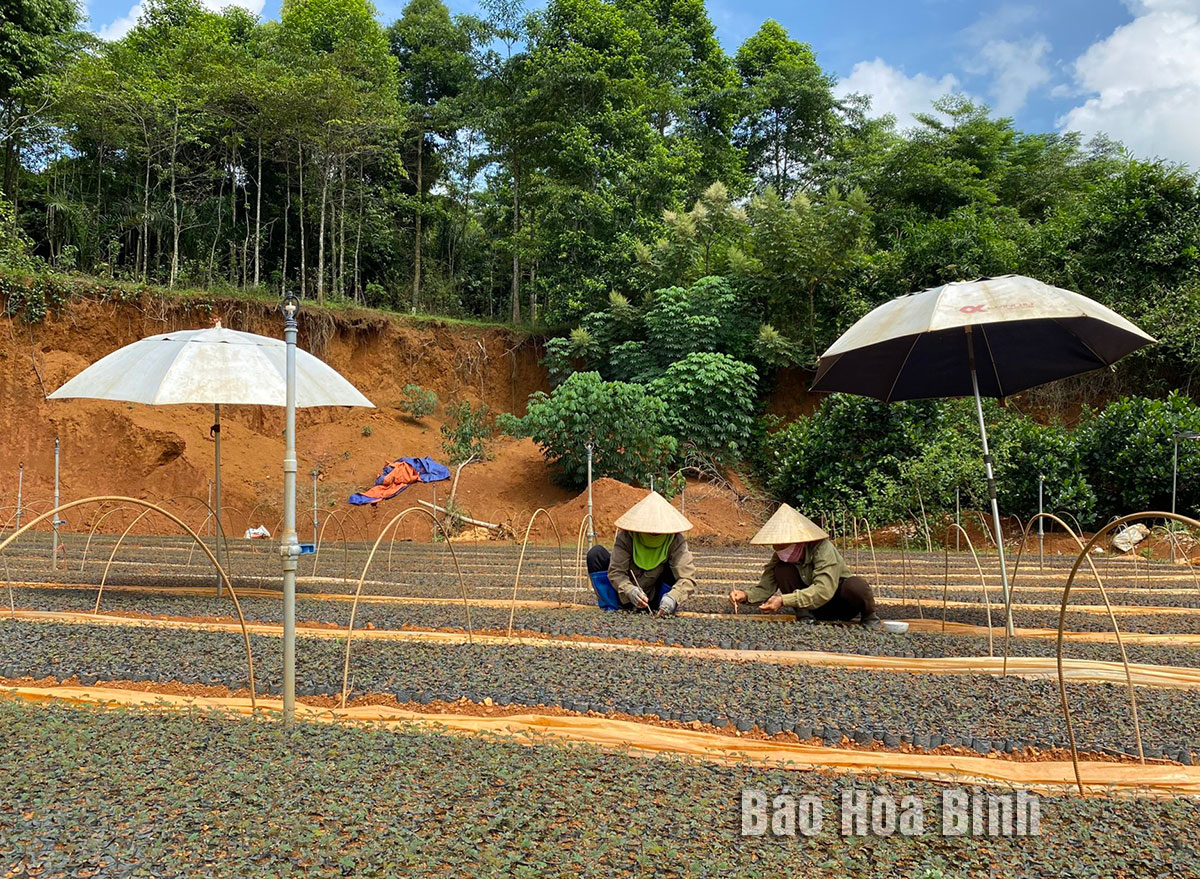Hoa Binh now has more than 237,999ha of forest
(141,614ha of natural forest and 95,685ha of artificial forest) and another
60,713ha of newly cultivated forest. The forest coverage has reached 51.69%,
including over 132,817ha of plantation forest, according to the provincial
People’s Committee.
Since 2020, more than 21,470ha of forest has
been cultivated across the province, equivalent to about 7,157ha annually, with
over 95% of the area using seedlings with high quality and clear origin. This
is an important prerequisite for developing large-timber plantation forest.
The provincial Department of Agriculture and
Rural Development attributed those results to the implementation of many
important policies to develop forest resources, especially Resolution No
27-NQ/TU of the provincial Party Committee’s Standing Board on developing
plantation forest in Hoa Binh until 2025, with orientations towards 2030. Under
this resolution, all-level Party committees, administrations, agencies, units,
and localities have boosted communications to equip local residents and forest
owners with knowledge about the use of high-quality varieties with clear origin
for afforestation, and forest cultivation and caring techniques.
To improve the wood product value chain’s
effectiveness to meet export standards, businesses have proactively partnered
with forest owners and local people to form stable and sustainable material
supplying zones to serve export processing. Departments, sectors, and
district-level authorities have also assisted businesses to build sustainable
forest management plans and apply for sustainable forest management
certificates.
So far, over 16,000ha of artificial forest in
Hoa Binh has been granted the Forest Stewardship Council (FSC) certificates.
The area of artificial plantation forest granted the sustainable forest
management certificates has covered 53% of the total.
The provincial People’s Committee said local
administrations and people’s awareness of developing intensive large-timber
plantation forest has been improved. Many business models of large-timber
plantation forest have taken shape, generating 150 - 200 cub.m. of timber per
ha and 150 - 200 million VND (6,180 - 8,240 USD) per ha in income, with profit
much higher than small-timber plantation forest’s. The productivity of
plantation forest increased from 12 cu.m. per ha per year in 2020 to 16 cu.m.
per ha per year in 2022. The average timber output stood at 80 cu.m. per ha for
a five-year cycle in 2022 while the average value per ha rose 1.33-fold from
2020.
That has helped improve income for locals,
especially ethnic minority people with disadvantages in remote and rural areas.
The forestry contribution to the agriculture and rural development sector
increased to 11.11% last year from 9.37% in 2020. The rate is targeted at 16%
by 2025 and 20% by 2030, according to the People’s Committee.
To that end, Hoa Binh will continue assisting
businesses to invest in intensive processing and apply modern and
environmentally friendly technology, set up forestry cooperatives, develop
forestry value chains, and step up forestry land consolidation to create
large-scale production zones.
The province will also effectively carry out the
policy on forest environmental service fees, actively engage in the carbon
market, foster ecotourism, effectively apply agriculture and forestry
combination models, facilitate forest farming, and develop non-timber product
manufacturing to increase forestry revenue and investment in forest
development.



